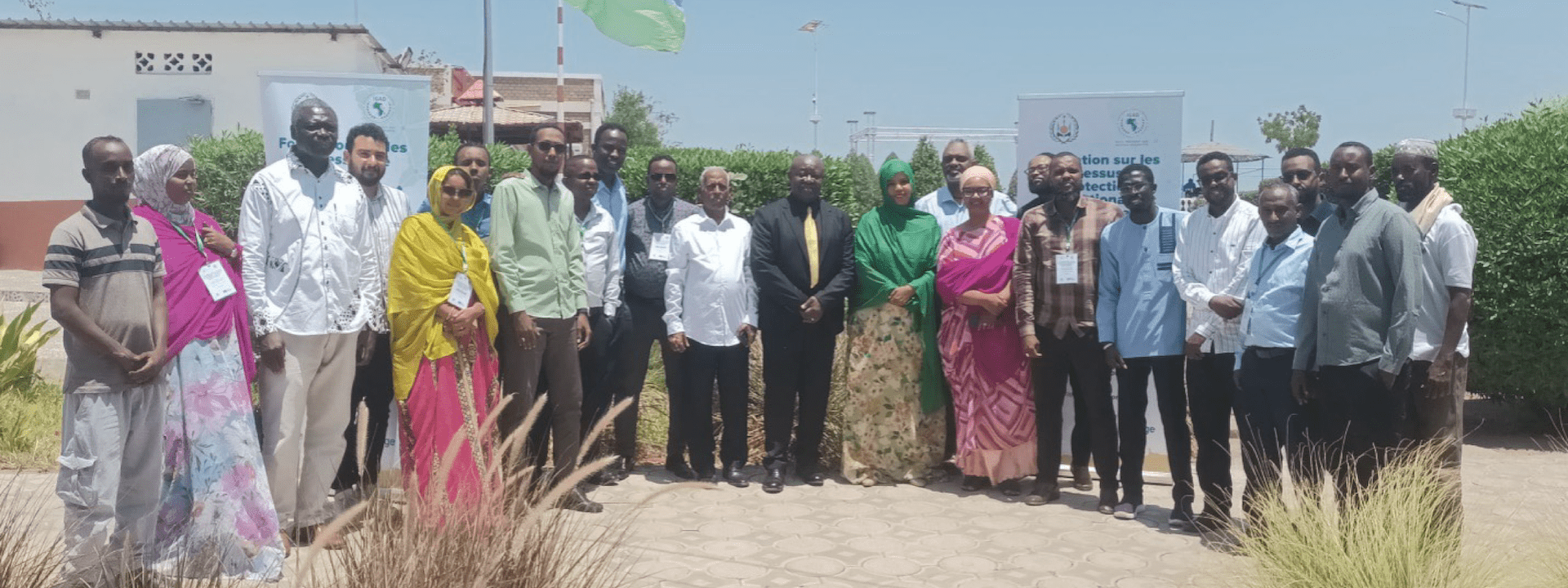September 20, 2024 (Arta, Djibouti): The Intergovernmental Authority on Development (IGAD) has conductedTraining on International Protection and Refugee Status Determination Processes for the National Office for Assistance to Refugees and Disaster Victims of Djibouti, to enhance the capacity of its Member States in implementing the IGAD Policy Framework.
The overall objective of the three-day training is to equip officials with the necessary skills and knowledge to conduct thorough and accurate refugee status determination assessments.
In her Opening Remarks, Madam Fathia Alwan, Director, Health and Social Development Division, IGAD, explained that the specialized sessions addressed four thematic areas identified in consultation with Member States and provided an opportunity to exchange good practices and improve the capacities of staff in charge of issues relating to the implementation of protection and refugee status in IGAD member countries.
“At the IGAD level, allow me to recall the crucial and determining role of our organization through various projects and programs designed to respond both on a humanitarian level to the essential needs of refugees but also from a sustainable development perspective to research and formulate policies and structural responses to armed conflicts and their disastrous consequences in our sub-regional space,” she added.
The Director also thanks United Nations High Commission for refugees and the Sweden government for their commitment and the essential contribution.
“I am convinced from the outset of the practical usefulness of this training for the participants who will undoubtedly find there beneficial tools and approaches to strengthen their respective skills in the delicate handling of issues relating to protection and the granting of refugee status,” furthermore She stated.
In his remarks, Mr Mohamed Ali Kamil, the Executive Secretary of the National Office for Assistance to Refugees and Disaster Victims of Djibouti (Djibouti’s L’Office National d’Assistance aux Refugies et Sinistres (ONARS), disclosed that the Republic of Djibouti plays a vital role in protecting vulnerable people.
According to Mr Mohamed Ali Kamil, the Republic of Djibouti, with a long tradition of hosting refugees and asylum seekers, currently hosts more than 31,000 of them, mostly from Ethiopia, Eritrea, Somalia, and most recently Yemen.
“We face significant challenges, but together we can chart a path towards a future where the rights of refugees are not only recognized, but integrated into our social fabric,” He noted.
Djibouti has adopted an open-door policy, offering asylum and protection to those under threat and forcibly displaced from their home countries.
Mr. Philippe Creppy, UNHCR Representative in Djibouti, in his part thanks the country’s highest authorities, His Excellency Mr. ISMAÏL OMAR GUELLEH, President of the Republic of Djibouti and Head of Government, for allowing the refugees to be in Djibouti.
“I think it’s important for us as High Commissioner for Refugees, because I’ve traveled a lot for my work, I’ve never seen so much warmth and open-door policy, Djibouti is an example for us a dear,” he expressed.
The training brought together participants from members of the law enforcement agencies (Gendarmerie and Police) at the various entry points, refugee sites and Djibouti City, agents of the ONARS of Djibouti and refugee sites, related to Refugee Status Determination and Protection in general and IGAD Secretariat.
Budget for the IGAD Training on International Protection and Refugee Status Determination Processes financed by Sweden Government.
Subsequently, the training resulted in equipping the participants how to assess asylum claims in accordance and abled to better assist and protect refugees in line with international standards, including, interactive exchanges and sharing of experiences and know-how, in order to identify innovative solutions to the challenges encountered, as well as, better understanding of refugees’ rights and their role in their protection.
Finally, the training on International Protection and Refugee Status Determination Processes for Djibouti ONARS concluded successfully, in reviewing Key Learning and Skills the trainers have developed during the training and discussed on the Next Steps and Ongoing Support and by closing a remark delivered by Madam Fathia Alwan, Director of Health and Social Development, IGAD.
It is to be recalled that in 2022, IGAD and UNHCR had jointly organized a regional training of trainers in Djibouti City for experts from Member States with the aim of improving their knowledge and skills in the practical application of international refugee law and to better immerse themselves in the principles and concepts governing protection issues.
As a reminder, the Republic of Djibouti, in the early hours of its accession to national sovereignty, welcomed for the very first time in 1978 thousands of people fleeing the wars between its two main neighbors with whom it shares hundreds of kilometers of common borders.
Internationally, the 1951 Convention on the Status of Refugees and its 1967 Protocol, and regionally, the 1969 OAU Convention Governing the Specific Aspects of Refugee Problems in Africa, were developed to address refugee protection explicitly.

